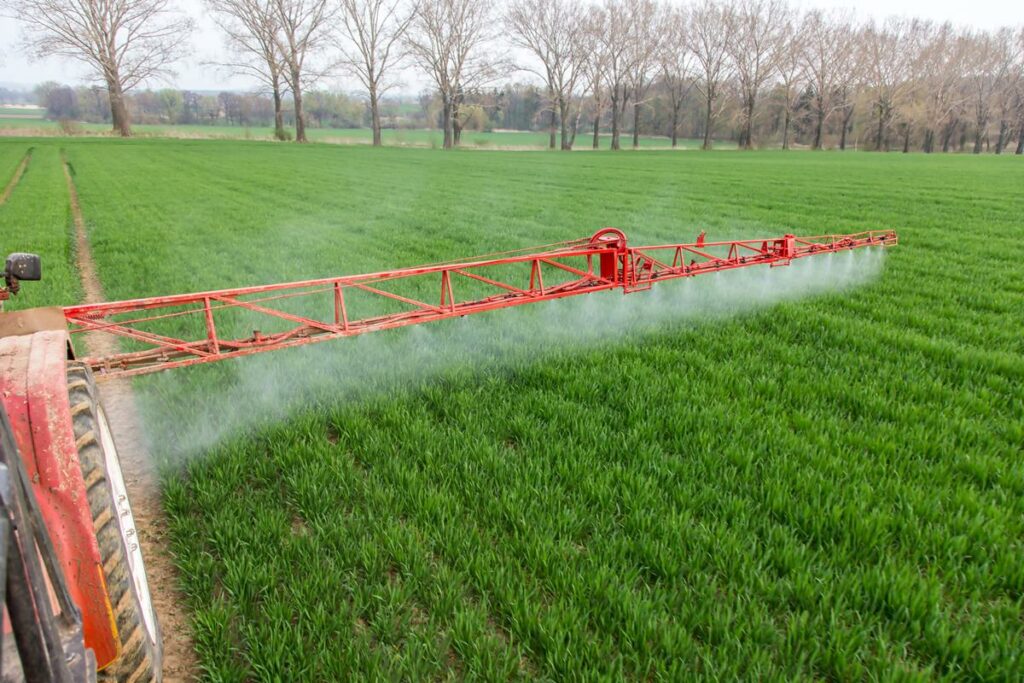Some weeks ago, the UK launched its Pesticides National Action Plan (NAP) 2025; its objective is to reduce pesticide usage for environmental and human health reasons.
While the pesticides plan recognises that farmers need the tools to grow food and the merits of Integrated Pest Management – or Integrated Crop Management (ICM) – it is missing some critical points.
That’s according to independent agronomist and deputy managing director of the farmer-owned cooperative, Scottish Agronomy, Greg Dawson.
“If we focus too narrowly on chemical reduction targets without considering their real-world implications, policy makers may unintentionally make growing food in the UK less sustainable – practically, economically, and environmentally,” Dawson said.
The agronomist added that farmers have generally become hardened to the fact that the toolbox is being repeatedly squeezed, and each new policy and plan will take away another input they rely on to produce food at scale.
But if it goes too far, it will make primary production in the UK unviable or unattractive to be in, he explained.
“We saw in Denmark how the introduction of a pesticide tax, in addition to an already stringent regulatory process, disincentivised the use of a specific multi-site fungicide for the control of potato blight,” he continued.
“Strains emerged that were more aggressive and adapted to overcome plant resistance and compromised the activity of some of the remaining fungicides.
“In some cases, crops failed to achieve a marketable yield which is the worst case for environmental and economic sustainability.
“These strains have now spread throughout the northern European potato-producing area placing even more pressure on ICM plans,” he added.
In the UK, the reorganisation of Plant Protection Product regulations post-Brexit resulted in the removal of the only options for grass weed control in winter oats, a crop that has a great health story for Scotland, according to the agronomist.
“A swathe of our members stopped growing them in response,” he said.
The Scottish Agronomy representative went on to point out that the UK is doing an amazing job, where the effective use of agrochemicals is concerned.

Between 1990 and 2020, synthetic inputs in the UK have reduced by 60%, while they have increased by 90% globally.
“No responsible producer would want to see unfettered use of synthetic inputs. But they have been a strong part of the UK’s food narrative since the much lauded post-Second World War Green Revolution,” Dawson continued.
“…the innovations in plant breeding and the introduction of chemical fertilisers and pesticides which increased yields, feeding a growing population, improving standards of living and suppressing food prices.
“They still have an essential place today.”
Dawson has pointed to a conundrum that now confronts arable farming in the UK.
While the aforementioned NAP recognises the importance of ICM (referred to as IPM), it fails to appreciate that it is a strategic approach with multiple tools that rely on each other.
“The clue is in the word ‘integrated’. Without, or with limited, chemistry, one of the legs of the stool has gone,” he explained.
“Crop rotation, variety choice and drilling dates are key components of ICM but their effectiveness to reduce weed, pest and disease pressure is supported and protected by the use of plant protection products, and critically, multiple modes of action.
“Ongoing withdrawals and regulatory constraints are eroding our ability to fully utilise one important suite of tools effectively, and that has consequences for the others too.”

